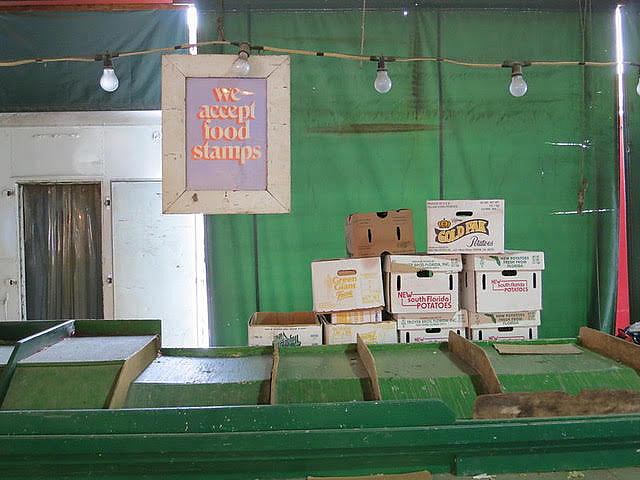When the balancing act between daily beat and big project doesn’t go as planned
It probably shouldn’t be surprising to most people that a freelance journalist who is part of a historically underpaid industry and living in a major metropolitan area would be somewhat familiar with food banks or food stamps. But what I quickly realized was how little I actually knew about food insecurity, despite personally experiencing it while I was unemployed in 2018. I also became aware of just how ill-prepared I was to manage a reporting project of this magnitude largely by myself.
I wish that I could share heartwarming anecdotes about earning the unwavering trust of my sources who allowed me to shadow them on multiple food bank visits, watch as they prepared meals at home with donated food items, and eventually share their full names and faces with me and the world, but none of this happened.
When I set out to report on the shortcomings and gaps in the Bay Area’s food safety net, I was already living that very experience, but then I had a sudden and positive change of fortune. The very week that I learned I was selected for the 2019 California Fellowship, I had started my current full-time job as a staff writer for a weekly community newspaper, giving me paid vacation, health benefits and a steady paycheck that ensured buying groceries wouldn’t be (as much of) an issue. Despite the great amount of work ahead of me, I was determined to do justice to my fellowship project while simultaneously learning my primary beat as the local schools and education reporter at my new job.
Time management was an issue from the beginning — balancing the needs of my regular job against my project required daily check-ins with a spreadsheet containing my sources and pertinent information about them, as well as checklists with every task that needed completing, whether it was making a phone call or searching for a specific report. Schedule adjustments were occasionally necessary to conduct field interviews in San Jose during the Spartan Food Pantry weekday operating hours; I also needed to set aside time for transcribing audio recordings from interviews and for thinking about my project and where it was going.
The conflict between prioritizing my regular job duties and keeping up with my project created situations that I think contributed to what I consider lackluster results. If I had changed my project’s geographic focus over to the community I cover for my regular job, then I could have worked on it during my normal work hours and expended more energy and attention to details. I also would’ve had greater editorial support from the outlet that published my first two stories, due to the distance between their office in Silicon Valley and where I live.
Where I work now, the Tri-Valley, is renowned as a Bay Area enclave of the upper-middle class with a famously low population of unhoused people. Silicon Valley is home to some of the world’s most expensive real estate markets but features a glaring equality gap not readily seen in eastern Alameda County, where the Tri-Valley lies. I suppose switching the regions I was reporting on would’ve been possible, but I was already committed at that point to my Silicon Valley publisher, who had made my candidacy for the fellowship possible.
Looking back, I wish I would’ve taken that shot. The first outlet that I contracted with for my project had sent some press releases about local food bank events and tried to connect me with another source for my project, but I was unable to get much more help. I had a lot of side ideas that I wanted to develop along with my series that went unrealized: a social media profile or blog chronicling different recipes made from donated food items and photos to accompany each post, interviews with chefs or dieticians about the nutritional value of those dishes, developing infographics — the possibilities seemed endless but were impossible to pursue because, after a certain point near the end of the project, I was unable to get even basic feedback about my story drafts.
I could share about how more recently I began comparing the food situations of these two largely wealthy communities with surrounding areas just out of curiosity and, unsurprisingly, noticed that the food insecurity rates are nearly double in poorer neighborhoods. But before I take on another project like this again, I think what I learned most of all was how to organize and pull off a long-term endeavor like this. Even if I consider this a failure from what I originally set out to accomplish, I usually manage to find small successes in those shortcomings and this experience has been no different.
Was it a waste of time? Of course not. Ordinary people read my story, shared and commented on it. In many ways, that means a lot more than feedback from people who work on these issues because I was able to make a topic they don’t think about much meaningful for them. It inspired some people to donate to local food drives and others shared their own stories about helping feed neighbors.
My own morals and ethics frequently came into play, whether it was weighing the responsibility of protecting a source’s identity against the public’s need for transparency or deciding if a series like this warranted a more discerning look at certain systems and policies in place. The food network is so complex that I ended with even more questions than I started with.
While my project didn’t unfold how I imagined, it has spurred me to continue learning about food insecurity after the fellowship deadline has passed, inspiring another angle that I’m looking into as a possible future story. And really, even if your journalism doesn’t change things outright, it should at least make you do what the world needs more of these days: ask questions.


